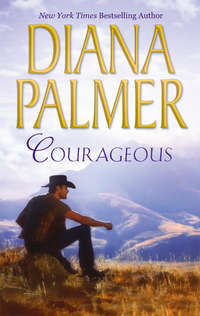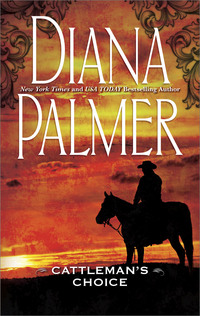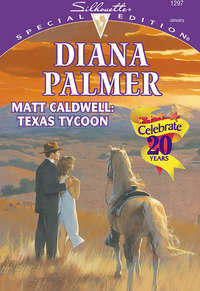
Полная версия
The Texas Ranger
Chapter Two
Nothing about a crime scene ever got easier, Marc Brannon thought as he knelt beside the body of the shooting victim. The man was young, probably no more than late-twenties, and he was dressed shabbily. One bare arm bore a tattoo of a raven. There were scars on both wrists and ankles, hinting at a stint in prison. There was a pool of blood around his fair hair and his pale eyes were open, staring blankly at the blue sky. He looked vulnerable lying there; helpless and defenseless, with his body wide-open to the stares of evidence-gatherers and curious passersby. Evidence technicians went over the scene like bloodhounds, looking carefully for trace evidence. One of them had a metal detector and had just found a slug which they hoped would be from the murder weapon. Another technician was videotaping the crime scene from every angle.
Brannon’s big, lean hand smoothed over the neat khaki of his slacks while his keen, deep-set silver-gray eyes narrowed in thought. Maybe Marsh had nothing to do with this, but it was curious that a dead body would be found so close to his nightclub. No doubt Marsh would have an iron-clad alibi, he thought irritably. He had dozens of cronies who would give him one whenever he needed it.
Deep in thought, Brannon watched the lone medical examiner investigator work. She was going very slowly and methodically about securing the body. Well, she should. It could turn out to be a very high-profile case, he reminded himself.
The homicide detective for the central substation, Bud Garcia, waved at Brannon before he spoke to the patrol officers who’d apparently found the body. He sighed as he joined the medical examiner investigator beside the body, out of the way of the evidence technicians who were busily garnering trace evidence close to the body. Brannon had an evidence kit himself, but he would have felt superfluous trying to use it with so many people on the case. There were continuous flashes of light as the corpse was photographed as well as videotaped.
“Hi, Jones,” he greeted her. “Do we know anything about this guy yet?”
“Sure,” she replied, busily bagging the victim’s hands. “I know two things about him already.”
“Well?” he prompted impatiently, when she hesitated.
“He’s male, and he’s dead,” Alice Jones replied with a wicked grin as she put the last bag in place with a rubber band. Her hair, black and short, was sweaty.
He gave her a speaking glare.
“Sorry,” she murmured dryly. “No, we don’t have anything, not even a name. He wasn’t carrying ID.” She stood up. “Care to guess about his circumstances?”
He studied the body. “He’s got abrasions on his wrists and ankles. My guess would be that he’s an escaped prisoner.”
“Not bad, Ranger,” she mused. “That would be my best guess, too. But until we get him autopsied, we’re going to have to wait for our answers.”
“Can you approximate the time of death?”
She gave him a long, appreciative look. Her eyes twinkled. “You want me to jab a thermometer in his liver right here, huh?”
“God, Jones!” he burst out.
“Okay, okay, if you have to have a time of death, considering the state of rigor, I’d say twenty-four hours, give or take two either side,” she murmured, and went back to work. “But don’t hold me to it. I’m just an investigator. The medical examiner will have to go over this guy, and he’s got bodies backed up in the morgue already. Don’t expect quick results.”
As if he didn’t know that. Evidence processing could take weeks, and frequently did, despite the instant results displayed on television police shows.
He swore under his breath and got to his feet gracefully. It was a hot September day and the silvery metal of his Texas Ranger badge caught the sun and glittered. He took off his Stetson and swept the back of his hand over his sweaty brow. His blond-streaked, thick and wavy hair, was momentarily visible until he stuck the hat back on, slanting it across his eyes.
“Who called you in on this?” the assistant medical examiner asked cursorily as she worked to prepare the body for transit.
“My boss. We’re hoping this may be a link to a guy we’ve been trying to close down for several years without success, considering where the body’s located. Naturally my boss sent someone experienced and capable and superior in intelligence to investigate.” He looked at her mischievously.
She glanced appreciatively up at her rugged companion, appraising his lean physique and commanding presence. She gave a long, low whistle. “I’m impressed, Brannon!”
“Nothing impresses you, Jones,” he drawled.
He turned around and went to look for Bud Garcia, the homicide detective. He found him talking to another plainclothes detective, who had a cell phone and a notepad.
“Well, that sure fits the description,” Garcia was agreeing with a satisfied smile. “Right down to the raven tattoo. It’s him, all right. What a lucky break! Thank the warden for me.”
The other officer nodded and spoke into the cell phone again, moving away.
“Brannon, we’ve got something,” Garcia said when he saw the taller man approaching. “Wayne Correctional Institute down near Floresville is reporting a missing inmate who fits this man’s description exactly. He escaped from a work detail early this morning.”
“Have you got a name?” he asked.
“Yeah.”
“Well?” Brannon pressed.
“It’s Jennings. Dale Jennings.”
It was a name that Brannon had reason to remember. And now the face that seemed so familiar clicked into place. Jennings, a local hoodlum, had been convicted of murdering a wealthy San Antonio businessman two years before. He was also alleged to have strong ties to Jake Marsh and his underworld. His photograph had been in half the newspapers in the country, not to mention the front page of several tabloids. The trial had been scandalous as well. Josette Langley, the young woman who had been Jennings’s date the night of elderly Henry Garner’s murder, insinuated publicly that the person who stood to gain the most from the death was Brannon’s best friend, who was Bib Webb, now Texas Lieutenant Governor.
But Webb’s attorney had convinced the prosecutor that it was Jennings who committed the murder and that Josette’s testimony in Jennings’s behalf was filled with lies. She had, after all, been proven a liar in a rape trial some years earlier. Her past was what had saved Webb from any charges. Silvia Webb, Bib’s wife, had seen old man Henry Garner outside and waved to him just before she left to take Josette home. She also said she’d seen a bloody blackjack on the passenger seat of Jennings’s car. Both she and Bib Webb had an alibi for the next few minutes, during which Garner was said to have lost his life on the pier of the private lake at Webb’s estate.
When Silvia came back from taking Josette home and saw Garner’s car still in the driveway, and empty, and nobody remembered seeing him recently, she called the police to report it. Several guests remembered hearing her make the call, and sounding disturbed. The guests were forbidden to leave the party while they searched for the old man, whom they found floating near the pier, dead. It looked like an accidental drowning, one newscaster said, and it was rumored that the old man had been drinking and walked off the pier, hitting his head on the way down. Still, no one was allowed to leave the scene until the police and the EMTs, along with the coroner, were finished. Witnesses were questioned.
Even so, it just might have passed for an accident. Except that Josette, who heard the breaking story on television later that night, called the police and told them that Garner hadn’t been drinking at all, that she hadn’t seen him outside when she and Silvia left the party, and that there had been no blackjack in Dale Jennings’s car. She knew because she’d ridden in it to the party.
A lump was found on Garner’s head when they pulled him out of the water. There was a blackjack lying visible on the passenger seat of Dale Jennings’s car. He’d protested wildly when the police took him away.
Josette was positive Bib Webb was involved. But it was that suspicion, against the ironclad alibis of Bib Webb and his wife, who stated that Jennings had a motive—an argument the day before with Garner over his salary. It turned out that Garner had been paying Jennings to be his combination handyman and chauffeur. It was alleged that Jennings was helping himself to the old man’s possessions as well. They found a very expensive pair of gold cuff links, a diamond tiepin and a lot of cash in his apartment, which added to the sensationalism of the trial. Jake Marsh had been pulled in and questioned repeatedly because of some nebulous work Dale had done for him. But there was no hard evidence and Marsh walked away without a blemish, to the dismay and fury of Bexar County prosecutors and State Attorney General Simon Hart.
Brannon stuck his hands into the pockets of his khaki slacks. They clenched as he recalled Josette’s face in another courtroom, years ago, when she was only fifteen and trying to convince a hostile jury that she’d been drugged and nearly raped by the son of a wealthy Jacobsville resident. Josette’s life had been a hard one. But it wounded him that she could have accused Bib Webb, his best friend, of something as heinous as murdering a helpless old man for money. It was so obvious that Jennings had done it. He even had the murder weapon in his car, blatantly in sight on the front passenger seat, still bearing minute traces of blood and tissue, and hair, from poor old Garner’s head. The medical examiner positively identified the blackjack as the weapon used to stun the old man before he was pushed into the water.
“You know the Langley woman, who works in Simon Hart’s office, don’t you?” Garcia asked suddenly, dragging Brannon back to the present. The two men had known each other since Garcia was a patrolman and Brannon a fledgling Texas Ranger.
Brannon nodded curtly. “We both come from Jacobsville. Josette and her mother and father moved to San Antonio some years ago. I heard that her parents were dead. I haven’t seen her in two years, not since she moved to Austin,” he added, reminded unwillingly that he’d broken off their relationship the week before Garner had died.
“No reason to, I imagine,” the officer said carelessly.
Brannon’s eyes went back to the body on the ground. “This does look like a professional hit,” Brannon said out of the blue, studying Dale Jennings’s body, with his hands bagged and his white, still face vanishing under the zip of the dark body bag. “One downward-angled gunshot to the back of the head at point-blank range. His knees were covered in red mud, just like this.” He moved the dirt caked on the pavement with the toe of his boot. “He was probably kneeling at the time.”
“That was my first thought, too. And it’s a pretty big coincidence that Marsh’s nightclub is only two doors that way,” the detective agreed, nodding toward the street that fronted the alley.
“If Marsh is involved here, I’ll find a way to prove it,” Brannon said bitingly. “He’s walked away from murder and attempted murder, drug-dealing, prostitution and illegal betting on sports for years. It’s time we made him pay for the misery he’s caused.”
“I’ll drink to that. But we can’t just walk in and arrest him without probable cause. Not that I don’t wish I could,” Garcia confessed ruefully.
“Well, there’s no time like the present to get started. I’m only in the way here as it is. I’ll go back to my office and fill Simon Hart in on what we know.” He pursed his lips. “He’s going to be madder than a teased rattlesnake.”
Garcia chuckled. “That he is.” He looked toward the body. “Did the guy have any family?”
“A mother, I think. Did they find the slug?”
“They found a slug. Ballistics will have to tell us if it’s the right one. I’d bet on a nine millimeter handgun myself, but that’s why we have the Bexar County Forensic Science Center.”
“And the department of public safety’s own lab,” Brannon felt obliged to mention.
“Which is a very good one,” Garcia agreed, smiling. “Say, wasn’t Jennings convicted of murder a couple of years ago?” he added suddenly.
“Yes. In a trial that almost implicated our brand-new lieutenant governor, too,” Brannon told him. “It almost cost him the election. Both contenders were first-time state office seekers. But the other guy dropped out a week before the election, and Bib won. He’s a good man.”
“Yes. So he is.”
“I had a nice, easy month all planned,” Brannon sighed. “Now here I am up to my armpits in a dead body and a two-year-old murder case that the press will resurrect and use to embarrass Bib Webb. It couldn’t be worse timing. He’s just won his party’s nomination for that senate seat that the incumbent resigned from because of a heart attack. The publicity could kill Bib’s chances.”
“Life, they say, is what happens when you have other plans,” Garcia said with a grim smile.
“Amen,” Brannon agreed heavily.
He went back to his office and phoned Simon Hart with the news. An hour later, he was on a plane to Austin.
Simon Hart listened to Brannon’s report in his spacious office in Austin. He’d requested the Ranger’s help on the case as soon as he knew who the victim was. Brannon had a good track record with homicides and the Texas Ranger post in San Antonio was where he was stationed, anyway. Brannon had legal authority to investigate in multiple jurisdictions, and that complication existed. Jennings was killed in Bexar County, but he’d been in a correctional facility in Wilson County. Simon was certain that the murder was going to make national headlines. There was a sad lack of sensational news lately and the media had to fill those twenty-four-hour news channels with something. Sure enough, the murder had led the noon news on local channels. The body was barely in the morgue before the wire services and national television broadcast the story that the victim was tied to a murder case two years ago in Austin, Texas, that had involved the state’s lieutenant governor, Bib Webb. God knew, the media loved political scandal. But with luck, they just might get Jake Marsh for murder at last.
Simon had asked Brannon to fly to Austin and fill him in on the preliminaries. “I had Bib Webb on the line early this morning,” Simon told Brannon while he sipped coffee. “Not only is he running for the U.S. Senate, but his construction company is involved in a major project outside San Antonio, a prototype agricultural complex with self-contained irrigation and warehousing. He’s invested millions of his own money in an effort to help the drought-ridden ranchers. This case is already affecting him, and this is a bad time. Wally’s worried,” he added, mentioning the governor, who was a close friend. “Campaigning is seriously underway for the November election. Wally’s been stumping for Bib.”
“Yes, I know. I had lunch with Bib last week.” His gray eyes narrowed. “Could this rehash of the case be engineered to hurt him in the polls?”
“Of course it could,” Simon said with a grin. “You know how dirty politics is. But I don’t think sane people commit murder to cause a scandal.”
“There are a lot of insane people running loose in the world,” Brannon reminded him amusedly.
Simon shifted, moving the prosthesis he wore in place of his left arm onto the desk while he lifted his coffee cup with the right. He and Brannon were distantly related, both with ties in Jacobsville. Simon’s four brothers lived there. Brannon had grown up there, and he still had a ranch in Jacobsville where his sister, Gretchen, had lived until her marriage to the ruling Sheikh of Qawi in the Middle East. She and the sheikh had a son now, and they were becoming well-known in international circles.
“Have you heard from your sister, Gretchen, lately?”
Brannon nodded. “She phones me every month to make sure I’m eating properly. She doesn’t think much of my cooking,” he added with a fond smile at the thought of his baby sister.
“Does she miss Texas?” Simon asked.
“Not visibly. She’s too crazy about her little boy and Philippe,” he murmured, naming her husband. “I have to admit, he’s unique.”
“Why did you leave the FBI?” Simon asked abruptly, something that had bothered him lately.
“I got tired of living out of a suitcase,” Brannon said evasively. “Two years was enough.”
“I never could understand why you left the Rangers to begin with,” Simon replied, sipping black coffee. “You had seniority, you were in line for promotion. You tossed all that to go haring off to Washington. And then you only stayed there for two years.”
Brannon averted his eyes. “It seemed like a good idea at the time.”
“And it didn’t have anything to do with the Jennings murder trial or Josette Langley?”
Brannon’s jaw clenched so hard that his teeth ached. “Nothing.”
“You work out of San Antonio, and she works here in Austin.” Simon persisted. “Under ordinary circumstances, you won’t have to see her, if you don’t want to. At least, not after she investigates this murder for me.”
The odd wording of the remark went right by him. “I’ll do my job, regardless of the people I have to do it with,” Brannon said finally, and his pale eyes dared his cousin to pursue the conversation.
“Okay, I give up. But you’d better know that I’m sending Josette to San Antonio tomorrow.”
Brannon’s eyes glittered. “What?”
“She’s the only freelance investigator I have who’s cognizant of all the facts. Wayne Correctional Institute is near there, where Jennings was located before he managed to get released…”
“She was involved in the case!” Brannon burst out, rising to his feet. “Two years ago, she did her best to get Bib arrested for old Garner’s murder!”
“Sit down.” Simon stared at him with steady, cold silver eyes.
Brannon sat, but angrily.
“There are other people who maintain to this day that Jennings was nothing more than the fall guy in that murder,” Simon told Brannon. He held up a hand when Brannon started to speak. “Jennings and Josette had been invited to a party on Garner Lake with Bib Webb and Silvia and Henry Garner the night Garner died. Jennings was a nobody, but he had ties to the local San Antonio mob headed by Jake Marsh, and he’d threatened Garner over money. Recreational drugs were ingested at the party, the punch was spiked—even Bib admitted that—and I know Webb’s your friend. It might have passed off as a simple drowning except for Josette’s accusations and the knot on Garner’s head that was first thought to have occurred when he fell. Josette was the one who insisted that Garner hadn’t been drinking and didn’t accidentally fall off the pier.”
“She accused Bib because she didn’t like him or his wife,” Brannon insisted. “She was angry at me, to boot. Accusing Bib was one way of getting back at me.”
“Marc,” Simon said quietly, “you know what sort of upbringing she had. Her father was the youth minister of their church and her mother taught Sunday school. They were devout. She was raised strictly. She doesn’t tell lies.”
“Plenty of girls go wild when they get away from home,” Brannon pointed out stubbornly. “And I’ll remind you that she slipped out of her house to go to that wild party when she was fifteen, and accused a boy of trying to rape her. The emergency room physician testified that there was no rape,” he added, and was visibly uncomfortable talking about it. “She was almost completely intact.”
“Yes, I know,” Simon said with a sigh. “Presumably her assailant was too drunk to force her.” He glanced at Brannon, whose face was strained. “We have to solve this murder as quickly and efficiently as possible, for Webb’s own sake.”
“Bib is a good man with a bright political future ahead of him,” Brannon said, relieved at the change of subject. “He’s already ahead in the polls in the senate race, and it’s just September.”
“You mean, Silvia has a bright political future ahead,” Simon murmured dryly. “She tells him what to wear and how to stand, for God’s sake. She’s the real power behind his success and you know it. Amazing insight, for a woman so young, with no real education.”
Brannon shrugged. “Bib’s not a self-starter,” he admitted. “Silvia’s been his guardian angel from the beginning.”
“I suppose so, even if he did rob the cradle when he married her.” He leaned back. “As I said earlier, I want this case solved quickly,” he added. “We’ve already been in the public eye too often because we have a Texan in the White House. We don’t need to be the focus of any more media investigations of our justice system.”
“I agree. I’ll do what I can.”
“You’ll work with Josette,” Simon added firmly. “Whether or not you have to grit your teeth. You both know this case inside out. You can solve it.” If you don’t kill each other first, Simon thought.
Brannon waited for the elevator in the hall, leaning against the wall to observe a silk plant. There was a fine film of dust on it, and one petal was missing from the artificial rose. He wondered why the artificial flowers and plants in government office buildings never seemed to get dusted.
The sound of the elevator arriving diverted his attention. He straightened up just as the doors slid open to admit a single occupant to the floor.
Big dark brown eyes met his and went even darker with accusation and resentment in an oval face that had not even a touch of makeup. Her long blond hair was in a tight braided bun atop her head. She wore no jewelry except for a simple silver-and-turquoise cross suspended from a silver chain. Her shoes were gray, to match the neat, if outdated, suit she wore with a simple pink blouse. She was only twenty-four, but there were lines in that ordinary face, visible even through the big, gold-framed glasses she wore. His heart ached just at the sight of her.
Her full mouth parted on a shocked breath, as if she hadn’t expected to see him. Certainly he’d hoped to get out of the building without running into her. Her gaze dropped to the badge on his shirt pocket.
“I heard you were back working for the Rangers, in San Antonio,” Josette Langley said. Her face lifted as if with some effort and he noticed that her slender hands were clenched on the stack of files she was carrying. They were working hands; her short fingernails showed no polish, no professional manicure.
He shoved his hands into his pockets and clenched them as he looked down at her. She was only medium height. Her head came up to his nose. He remembered her dark eyes twinkling, her full lips parted and gasping with joy as they danced together at one of her college parties so long ago. He remembered the softness of her eyes when she smiled at him, the feel of her sweet, bare body warm and close in his arms, the innocence of her mouth when he kissed it for the first time, the feverish response of her body to his ardent caresses…
“Simon says he’s assigned you to this case,” he said curtly, refusing to permit his mind to look back in time.
She nodded. “That’s right. I usually do liaison work, but I know more about Dale Jennings than most of the other investigators.”
“Of course you do,” he drawled with venomous sarcasm.
“Here we go again,” she said with resignation. “Well, don’t stand on ceremony, Brannon, get it off your chest. I tell lies, I damage careers…maybe I cause computer crashes, but the jury’s still out on that one.”
He felt disoriented. He’d expected her to bite her lip and look tormented, as she had two years ago when he’d glared at her in court during Jennings’s trial. He reminded himself that she should be tormented. She’d led him on without a qualm, when she knew she couldn’t be intimate with a man. And her public accusations could have landed Bib Webb in jail. But this was a different Josette, a strong and cool woman who didn’t back down.
“I’ll need whatever information you have on Jennings,” he said abruptly.
“No problem. I’ll send it to the San Antonio office by overnight delivery before I leave the office today,” she said. She indicated the stack of files. “In fact, I’ve just been downstairs copying the information so that I could do that.” She smiled with forced pleasantry. “Unless you’d rather lug it back on the plane?”









